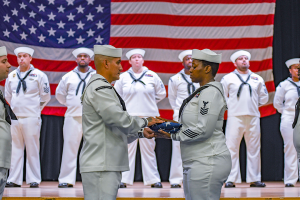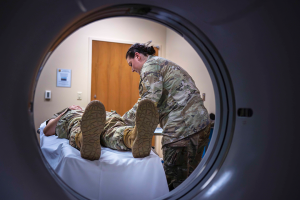
Transitioning from military to civilian life is a significant step that requires careful planning and consideration, particularly when it comes to employment. Finding a new career path that aligns with military experience and skills can be a challenge, but there are many good jobs for active-duty military that utilize their unique talents and experiences. In this post, we’ll explore several career options that offer a fresh start and a fulfilling career after service.
Project Management
Project management is a field where active-duty personnel can thrive due to their experience in leading teams, managing resources, and working under pressure. In the military, service members often oversee complex missions and coordinate with various stakeholders, which mirrors the responsibilities of a project manager in the civilian sector.
Skills Transfer: Active-duty service members are accustomed to strategic planning, risk assessment, and maintaining discipline—all key components of project management. Certifications such as Project Management Professional (PMP) can further enhance employability in this field. Many organizations value the leadership and problem-solving skills that individuals bring to the table, making this a lucrative and fulfilling career path.
Information Technology (IT)
The IT sector offers a variety of roles that are highly suitable for active-duty personnel, particularly those with experience in communications, cybersecurity, or technical operations. Positions like network administrators, cybersecurity analysts, and systems engineers are in high demand and offer competitive salaries and benefits.
Why Active-Duty Military Fit Well in IT: Professionals with technical training in the military have a head start when transitioning to civilian IT roles. Their ability to handle high-pressure situations, coupled with technical know-how, makes them ideal candidates. Additionally, obtaining certifications such as CompTIA Security+, Certified Information Systems Security Professional (CISSP), or Certified Ethical Hacker (CEH) can open up further opportunities in cybersecurity, one of the fastest-growing fields within IT.
Healthcare and Medical Services
For those with a background in military medicine, such as medics and corpsmen, transitioning to civilian healthcare roles can be a natural fit. Positions such as registered nurses, physician assistants, and medical technicians are in demand across hospitals, clinics, and private practices.
How Active-Duty Service Members Benefit from Healthcare Roles: Those trained in combat medicine or healthcare support roles already possess a solid foundation in emergency response, trauma care, and patient management. Civilian certifications and licensing, such as those for registered nurses or EMTs, may be necessary, but you can leverage your military training to meet these requirements more quickly.
Law Enforcement and Security
Law enforcement and security roles offer a continuation of the service mindset familiar to many active-duty personnel. Positions in federal agencies, local police departments, private security firms, and even cybersecurity roles in law enforcement are appealing to those looking to maintain a sense of duty and protect their communities.
Skills That Translate: The discipline, strategic thinking, and physical training acquired in the military are highly applicable to careers in law enforcement and security. Active-duty personnel often find that their experience in high-stress environments, decision-making under pressure, and tactical training gives them a competitive edge in this field.
Skilled Trades
Active-duty military possess specialized technical skills acquired during their military service, such as mechanics, electronics, carpentry, and welding. These skills are directly transferable to civilian skilled trades, which are experiencing a resurgence in demand.
Opportunities in Skilled Trades: Careers in construction, HVAC, automotive repair, and electrical work offer solid pay, job stability, and growth opportunities. Active-duty service members with technical training or experience in equipment maintenance, repair, or operational roles in the military may find a seamless transition into these trades.
Logistics and Supply Chain Management
Logistics and supply chain management is another field where active-duty personnel can excel due to their experience in managing military supply chains, transportation, and logistics operations. Civilian roles in this sector include logistics managers, supply chain analysts, and transportation coordinators.
Why This Field is Suitable for Active-Duty Military: These individuals are familiar with the complexities of logistics and the importance of efficient, strategic management of resources. This experience directly translates to managing supply chains and logistics in civilian businesses, from retail to manufacturing.
Aviation and Aerospace
Individuals with a background in aviation, such as pilots, aircraft mechanics, or air traffic controllers, transitioning to civilian aviation roles can be straightforward. The commercial aviation industry offers positions as airline pilots, aircraft maintenance technicians, and air traffic controllers.
Certifications and Licensing: While some roles may require additional certifications or licensing, active-duty personnel often find that their military training provides a strong foundation for pursuing these careers. Civilian aviation roles offer good salaries, benefits, and the opportunity to continue working in a familiar field.
Education and Training
Sharing Knowledge and Experience: Those who enjoy teaching and mentoring may find a rewarding career in education and training. Opportunities exist at various levels, from elementary and secondary education to vocational training and higher education.
Why Education is a Good Fit for Active-Duty Service Members: They bring a unique perspective to the classroom, along with leadership skills and a strong sense of discipline. They can also pursue roles in training and development within organizations, helping to build skills and competencies among employees. Programs like the Troops to Teachers initiative can help individuals transition into teaching roles, providing support and guidance along the way.
Entrepreneurship and Small Business Ownership
Building Something of Your Own
Active-duty military looking for independence and control over their careers, entrepreneurship and small business ownership can be highly rewarding. They often possess the discipline, leadership, and risk-taking abilities needed to start and grow a successful business.
Resources for Entrepreneurs: Resources are abundant for active-duty personnel interested in becoming entrepreneurs. Rory Farrell, Founder and Owner of Zero Nexxus Consulting, is a prime example of how you can transition to a successful entrepreneurial career. Entrepreneurship can offer a high-quality, purpose-filled life, but it requires careful consideration before taking the plunge. Zero Nexxus offers deliberate planning solutions specifically designed for active-duty service members who want to explore the benefits and challenges of entrepreneurship, helping you make informed decisions for your future.
Human Resources and Talent Management
Human resources (HR) and talent management are excellent career paths for active-duty personnel who excel in communication, leadership, and strategic planning. These roles involve managing recruitment, employee relations, training, and organizational development.
Transferable Skills: They often have strong interpersonal skills and experience in managing teams, which are valuable assets in HR. Certifications like Professional in Human Resources (PHR) or Society for Human Resource Management Certified Professional (SHRM-CP) can further enhance job prospects in this field.
Get the Help You Need to Find the Right Civilian Career
Whether you are looking for a career in project management, IT, healthcare, or even starting your own business, there are numerous paths to explore. For personalized support and guidance through your military-to-civilian transition, consider working with a consultant from Zero Nexxus. We offer tailored military transition services to help active-duty personnel navigate the job market and find the right fit for their skills and ambitions. Take control of your career journey today with our professionals by your side!


